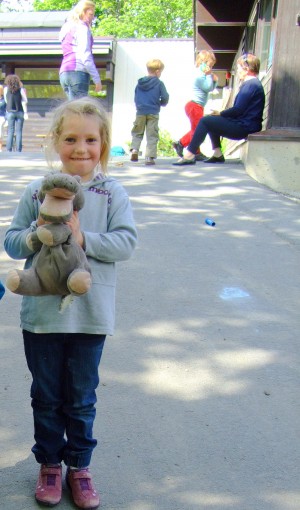Norwegian day care has undergone major changes during the last 10 years, and some 96 per cent of all children are now enrolled. The high and increasingly multi-cultural attendance is putting new demands on staffing that officials are struggling to meet.

Politicians seem fairly proud that there’s been a big increase in the sheer number of day care centers (called barnehager) in Norway. The problem now is finding enough qualified personnel to run them, and a new report shows wide variations in the quality of education and training given to pre-school teachers.
With around 80 per cent of one- to three-year-olds attending a day care center every day, and 11 per cent of all children in day care having non-ethnic Norwegian backgrounds, “we need to think big about the small, in order to get the quality we want from day-care,” says Education Minister Kristin Halvorsen.
She and her ministerial colleague Tora Aasland were handed an evaluation of pre-school teachers’ education in Norway this week by national organization NOKUT, charged with measuring the quality of education in the country. It concluded that the performance of the 20 institutions that educate pre-school teachers varied greatly. NOKUT noted that both the job and the courses pre-school teachers take suffer from lower status than the challenges of the work merit. Recruitment is a major challenge.
“We need better-qualified students,” professor emeritus Gunhild Hagesæther at the Christian HLA college in Bergen told newspaper Aftenposten. “They also need to know that they will have good career prospects. It’s important to do something about the low status of the profession.”
The unions agree that employees of day-care institutions need more education. “Better education should improve the status of day-care instituions which in turn will make recruitment easier,” Annette Ekeberg, who runs a day-care center herself, told newspaper Dagsavisen.
The leader of teachers’ union Undervisningsforbundet, Mimi Bjerkestrand, wants 50 per cent of the staff in day care to have professional qualifications to do the job. She says that Norway compares unfavourably with both Sweden and Denmark, where between 50 and 60 per cent of day-care employees have formal qualifications.
The unions also want a legal requirement governing the ratio of staff to children. Those under age three should have two adults present to look after seven to nine children, they claim, while older children should have two adults per group of 14 – 18.
Views and News from Norway/Sven Goll
Join our Forum if you’d like to comment on this story.

